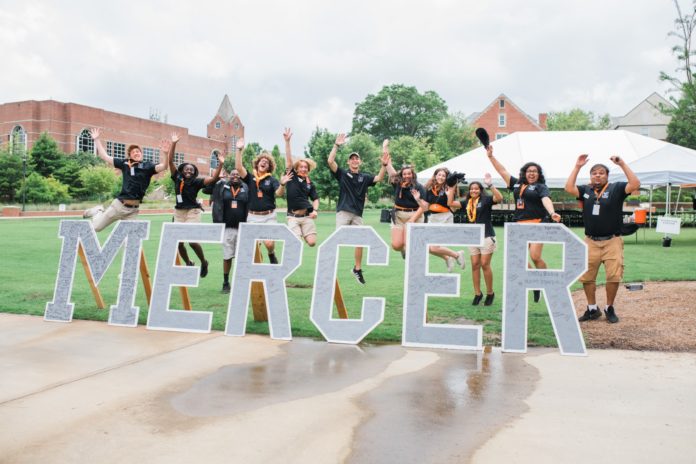Dear Kelly,
I was fully accepted to Mercer University and am supposed to begin next month. Now, I’m thinking I would like to take a gap year. Do you think it would benefit or hurt me further down the line?
It seems that over the past decade the concept of taking a gap year has grown exponentially in popularity. For any of my readers who may not have heard the term before, a gap year is a year-long break that some students choose to take, generally after graduating from high school and before starting college. Whether you should consider taking this break really depends on a number of factors.
To begin with, it depends on the reasons behind wanting to take a gap year. Gap years were once a necessity, becoming popular during World War II in Britain, so young men could serve in the military before beginning college. Then, during the 1960s, the gap year became even more popular, as students would use this time to travel or become involved in community service.
More recently, however, while some students may consider taking a gap year to travel or engage in service, many others think about taking the year-long hiatus simply because they desire a break from academia and all that it encompasses.
Some studies have shown that taking a gap year can benefit you — if you are choosing to take that year because you want to learn more about the world or become actively involved in service to others. When students have taken time off for these reasons, studies have revealed that students begin their freshman year ready to get started. The students are more focused, more mature and generally finish school in four years, as compared to students who did not take a gap year, who finish in five.
But you must take note that these benefits were for the students who spent the year studying abroad, learning about other cultures or engaging in community service. They were actively involved in volunteer opportunities or interning, they were not just taking a break. These students were still focused on their education and used the time to build who they were as an individual.
However, many students look forward to a gap year simply to take a break after high school. I completely understand why; you’ve spent the last 13 years in school, studying and writing papers, completing assignments and worrying about due dates. Nothing sounds better than being free from that for just one year, right?
What I want you to consider, however, is that taking a year break can make it very difficult to get back into the swing of things. Many students have seen their gap year become gap years or decades. They find a job, begin to make some money, and before long, they are weighing losing hours at work and time with family and friends with going back to school. They tend to struggle more when they return to school, if they do, in fact, return to school.
My best advice would be to really do some soul searching. Why do you want to take a gap year? Are you wanting to take the break to get involved in the community or travel to learn about other cultures? Or, are you simply needing a breather from being a student?
I would also encourage you to ask yourself, where do you see yourself in five years? Will taking a gap year affect that? Contact your admissions counselor and talk to them. You may find that taking a gap year can actually impact the admissions process and your acceptance. Ask yourself, would it be more beneficial to go ahead and start school, but maybe take online courses or possibly only enroll part-time, giving you a little more freedom while also giving you a chance to acclimate to the college experience?
Although taking that year-long break may sound amazing, will it hinder the goals that you have set for your future?
Make sure the decisions you make today positively impact your future. If you can say, “Yes, I have faith that I’m making the right decision by taking a year off,” and you have spoken to your admissions counselor and family and feel confident in doing so, then it may be a good idea.
On the other hand, if you have doubts or really haven’t considered the future implications, then I would forge ahead with your plans to immediately attend college. Whichever decision you make, make sure it best serves the goals that you have set for yourself and your future.
As always, I wish you health, happiness and continued success throughout your journey.
Kelly Browning, a master’s student and student ambassador at the Henry County Regional Academic Center, answers questions from the Mercer community. Email her at kelly.l.browning@live.mercer.edu or fill out our online form to submit your question anonymously.










